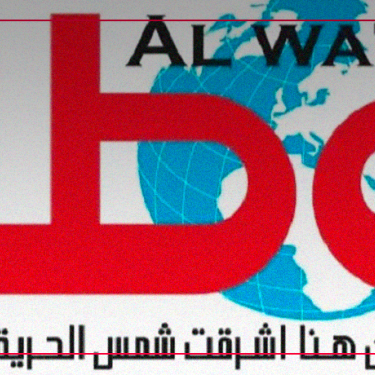South Sudan: arbitrary suspension of the daily Al-Watan after publication of president’s letter of condolence to Israel

South Sudanese authorities have indefinitely banned access to the independent Arabic-language daily Al-Watan offices, after the newspaper published a letter of condolence that they have sent to Israel. Reporters Without Borders (RSF) condemns this arbitrary suspension and calls on the authorities to reopen the newspaper at once.
A newspaper office closed for publishing a presidential letter. That’s the penalty for the daily Al-Watan since 24 November. That day, several members of the National Security Service entered the building that houses Al-Watan in the capital, Juba, and ordered its journalists to leave, and then padlocked the entrance. Production and circulation of the newspaper has been suspended indefinitely.
According to the newspaper’s staff, the suspension is a reprisal for its publication on 11 October of a letter to the Israeli authorities signed by President Salva Kiir Mayardit expressing condolences for the attacks on civilians by Hamas four days earlier.
They say the letter was sent prematurely to the newspaper, before it was finalised, by then Youth and Sports Minister Albino Bol Dhieu, who was fired five weeks later, on 17 November. He reportedly paid Al-Watan to publish it as sponsored content on its front page.
“The minister called the newspaper’s editor a few hours after sending the letter to say that it was a mistake but that day’s edition had already been printed,” a journalist told RSF, speaking on condition of anonymity.
Al-Watan editor Michael Christopher has provided audio recordings of his calls with the minister to the National Security Service as evidence of the newspaper’s claims. RSF’s requests to the South Sudanese authorities and the former minister for comments went unanswered.
Al-Watan’s closure by the South Sudanese authorities is arbitrary and outrageous. The newspaper simply published a letter sent by a government minister in a country where the print media are subject to permanent surveillance by the authorities. Under no circumstances can journalists be held accountable for a minister’s decision. Furthermore, no decision to suspend a media outlet is supposed to be taken without going through the Media Authority, the country's media regulator, which was not in any way consulted. The South Sudanese authorities must reopen Al-Watan at once and must undertake to provide press freedom with more safeguards.
Journalistic independence is just a dream in South Sudan, a country where politicians impose the media’s agenda and media outlets are exposed to threats whenever their content fails to toe the government line.
“A National Security Service officer is tasked with verifying the content of each Al-Watan edition before it is printed,” a journalist told RSF on condition of anonymity. Another said the same.
Al-Watan has been targeted by the authorities in the past. The Media Authority banned it from covering the protests in neighbouring Sudan in January 2019. The National Security Service detained Christopher, the newspaper’s editor, for more than five weeks later the same year.
